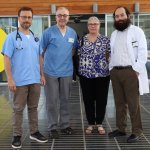
News • Chronic obstructive pulmonary disease
One step closer to COPD population screening
A multicenter study involving leading hospitals across Spain, has confirmed that people with COPD show altered levels of specific metabolites in their blood.

A multicenter study involving leading hospitals across Spain, has confirmed that people with COPD show altered levels of specific metabolites in their blood.
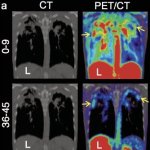
A new PET imaging technique can accurately detect and monitor Mycobacteroides abscessus lung infections—one of the most difficult-to-diagnose conditions in patients with lung diseases.
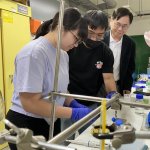
A new approach enables the detection of even trace amounts of cancer cells. The method leverages SERS for signal amplification, eliminating the need for fluorescent dyes.
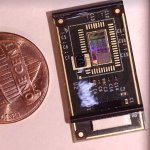
Early detection and management of asthma and COPD is critical. US researchers have developed a deep learning model paired with a wearable sensor patch to automatically detect wheezing sounds.
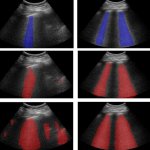
Using ultrasound imaging to detect Covid-19 infections, a new automated detection tool could help doctors in the emergency room diagnose patients quickly and accurately.
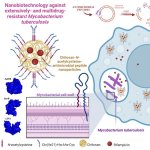
A low-cost technology involving nano-sized antimicrobial compounds against tuberculosis has been developed by researchers at São Paulo State University (UNESP).

A new survey by The BMJ reveals shortages of vital diagnostic tests for respiratory conditions, such as COPD and asthma, across some of the most deprived areas of England.
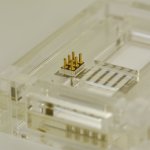
A new device that combines microfluidics on paper, electrochemical transduction and immunoassays on magnetic nanoparticles is useful for easy and rapid diagnosis of lung diseases.
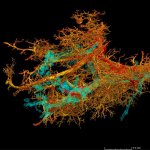
A new X-ray technology has been used to identify a link between the damage that severe Covid-19 can inflict on lungs and pulmonary fibrosis, a disease that causes severe scarring of lung tissue.
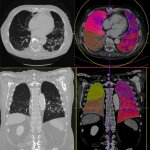
As knowledge about Covid-19 advances, so does the arsenal of techniques to predict, diagnose and follow up on the disease. At ECR, researchers presented a range of promising imaging modalities to keep track of Covid-19 symptoms, severity, and mortality, often including AI support to enhance or accelerate diagnostics.
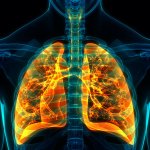
Scientists at the La Jolla Institute for Immunology discover new drug target for severe asthma and fibrosis.
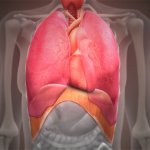
Covid-19 infection does not appear to affect the lung function of young adults, according to new research presented at the ‘virtual’ European Respiratory Society International Congress. In the first study to investigate the impact of Covid-19 infection on lung function, researchers led by Dr Ida Mogensen, a post-doctoral fellow at the Karolinska Institute, Stockholm, Sweden, found that even…
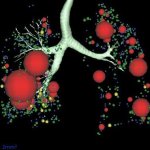
A novel CT scan-based approach has revealed significant changes in a parameter indicating lung destruction in some asthmatics. This finding could lead to more personalized treatments for asthma accompanied by persistent airflow limitation. Clinicians have long thought that some people with asthma experience declines in their lung function, called fixed airflow obstruction (FAO), due to changes to…
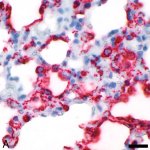
Covid-19 disease severity is determined by the individual patient’s immune response. The precise mechanisms taking place inside the lungs and blood during the early phase of the disease, however, remain unclear. Researchers from Charité – Universitätsmedizin Berlin, the Max Delbrück Center for Molecular Medicine (MDC) and Freie Universität Berlin have now studied the cellular mechanisms…
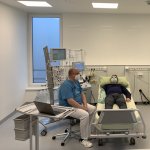
Apheresis, a procedure that separates and removes particular blood constituents, shows promise for Covid-19 cases: the first patient successfully underwent so-called CRP apheresis, which can prevent potentially fatal consequences of the infection.
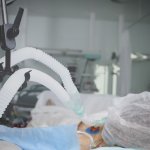
An unfortunate truth about the use of mechanical ventilation to save the lives of patients in respiratory distress is that the pressure used to inflate the lungs is likely to cause further lung damage. In a new study, scientists identified a molecule that is produced by immune cells during mechanical ventilation to try to decrease inflammation, but isn’t able to completely prevent…
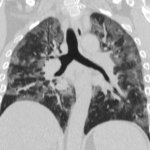
Bacteria or viruses like influenza that cause pneumonia can spread across large regions of the lung within hours. In the modern intensive care unit, these bacteria or viruses are usually controlled either by antibiotics or by the body’s immune system within the first few days of the illness. But in a study published in Nature, investigators at Northwestern Medicine show Covid-19 pneumonia is…

In some cases, immune cells in the lungs can contribute to worsening a virus attack. In a new study, researchers at Karolinska Institutet describe how different kinds of immune cells, called macrophages, develop in the lungs and which of them may be behind severe lung diseases. The study, which was published in Immunity, may contribute to future treatments for Covid-19, among other diseases.
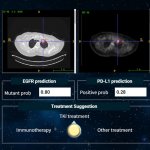
A software tool to predict the most effective therapy for non-small cell lung cancer (NSCLC) developed by applying deep learning artificial intelligence (AI) to positron emission tomography/computed tomography (PET/CT) images has been developed by researchers at H. Lee Moffitt Cancer Center and Research Institute in Tampa, Florida. The tool is designed to provide a noninvasive, accurate method to…

The increased Covid-19 risk to cardiac patients was discussed during an online presentation at ECR 2020. Focusing on the prevalence of pulmonary embolism in Covid-19 patients, Dr Karl-Friedrich Kreitner, Professor of Radiology at the Department of Diagnostic and Interventional Radiology at the Johannes-Gutenberg University in Mainz, Germany, discussed hypotheses which can explain cardiac…
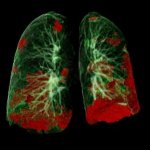
COVID-19 patients can suffer long-term lung and heart damage but, for many, this tends to improve over time, according to the first, prospective follow-up of patients infected with the coronavirus, presented at the European Respiratory Society International Congress. [1]
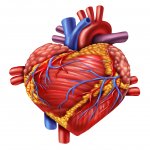
Heart patients hospitalised with COVID-19 can safely continue taking angiotensin-converting enzyme (ACE) inhibitors and angiotensin receptor blockers (ARBs), according to the BRACE CORONA trial presented in a Hot Line session today at ESC Congress 2020.(1)
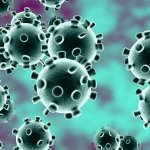
Which patient will develop a severe form of COVID-19? This is an essential question which must be answered in order to improve the individual management and the prognosis of these patients. In a publication in the journal Science, teams from the Assistance publique – Hôpitaux de Paris (AP-HP), Inserm, Université de Paris, Institut Pasteur and Institut Imagine describe a unique and unexpected…
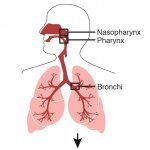
Infection with the novel coronavirus SARS-CoV-2 follows a highly variable course: some of those infected do not even notice it, while others become so seriously ill that their lives are placed at risk. Scientists from the Berlin Institute of Health (BIH) and Charité – Universitätsmedizin Berlin and their colleagues from Leipzig and Heidelberg have now discovered that the immune system has a…
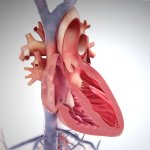
COVID-19 can cause serious cardiovascular complications including heart failure, heart attacks and blood clots that can lead to strokes, emergency medicine doctors at the University of Virgina report in a new scientific paper. They also caution that COVID-19 treatments can interact with medicines used to manage patients’ existing cardiovascular conditions.
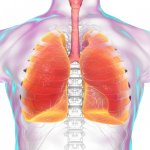
There has been an increase in deaths and disability due to chronic respiratory (lung) diseases over the past three decades, finds an analysis of data from 195 countries published by The BMJ. The poorest regions of the world had the greatest disease burden. Ageing and risk factors including smoking, environmental pollution, and body weight also play a key role, say the researchers. Chronic…

The migrant population is fast growing and heterogeneous. Experts at a session held during the European Congress of Radiology (ECR 2019) concluded that radiologists can play a key role in detecting and differentiating related diseases. Migration is a growing phenomenon and has an impact on health, according to Jozef Bartovic from the World Health Organisation (WHO) in Copenhagen, Denmark.…
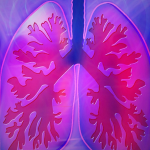
Researchers at Queen’s University Belfast have discovered a novel experimental treatment for chronic lung diseases that could improve the lives for people with Cystic Fibrosis (CF) and Chronic Obstructive Pulmonary Disease (COPD).
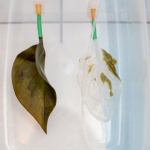
Researchers at the University of Arizona College of Medicine – Phoenix are cross-utilizing plant biology, medicine and engineering to create a novel platform. They have developed a revolutionary "lung on a leaf" to study pulmonary diseases.
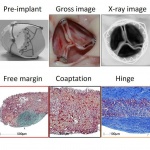
Electrospun materials bring a spark of hope to a cardiovascular landscape darkened by setbacks for reabsorbable stents. It was famously said that implanting a device in a person to cure a disease is to implant a new disease. Simply put, the human body will continually fight against foreign materials, leading to chronic inflammations or repeated interventions.

Cardiology in extreme environments takes centre stage at the British Cardiovascular Society (BCS) annual conference.

Cardiology at the extremes will be the key theme at the British Cardiovascular Society annual conference in Manchester in June. Topics covered include reflections in cardiology and space travel, physiological challenges associated with living under extreme environmental conditions and polar expeditions. Report: Mark Nicholls

First thing on a recent Monday morning, Professor Tomasz Grodzki could be found performing a lung resection in an operating theatre at the Regional Hospital for Lung Diseases in Szczecin-Zdunowo. Just two days earlier he was in a meeting with Senator John McCain, in Washington D.C.

Scientists at Washington University School of Medicine in St. Louis have detailed the structure of a molecule that has been implicated in Alzheimer’s disease. Knowing the shape of the molecule — and how that shape may be disrupted by certain genetic mutations — can help in understanding how Alzheimer’s and other neurodegenerative diseases develop and how to prevent and treat them.

New research has found that a process initiated in white blood cells known as neutrophils may lead to worse outcomes for some patients with chronic obstructive pulmonary disease (COPD). The discovery may help identify patients at higher risk for COPD progression, who might also show little benefit from standard treatments.

Doctors and scientists at the University of Southampton have used advanced 3D X-ray imaging technology to give new insight into the way an aggressive form of lung disease develops in the body.

In a small pilot study, researchers from North Carolina State University have demonstrated a rapid, simple way to generate large numbers of lung stem cells for use in disease treatment. This method of harvesting and growing a patient’s own lung stem cells shows promise in mice for treating idiopathic pulmonary fibrosis (IPF), and could one day provide human IPF sufferers with an effective, less…

With every breath you take, microbes have a chance of making it into your lungs. But what happens when they get there? And why do dangerous lung infections like pneumonia happen in some people, but not others? Researchers at the University of Michigan Medical School have started to answer these questions by studying the microbiome of the lungs – the community of microscopic organisms that are…

Adults who are worried or terrified sometimes curl up into a fetal position. Likewise, adult cells that are injured, including genetic injury leading to cancer, initiate a process that was present during embryonic development.
Publicly insured Americans who undergo lung transplantation for cystic fibrosis fare markedly worse in the long run than both publicly insured patients in the United Kingdom and privately insured Americans, according to the results of a study conducted by researchers from Johns Hopkins in Baltimore and U.K. colleagues working in that nation’s government-funded National Health Service.

The European Research Council (ERC) has earmarked about €2.5 mio. to fund the research being conducted by gastroenterologist and biochemist Professor Dr. Dr. Detlef Schuppan at Mainz University Medical Center. Professor Schuppan is a specialist in liver diseases ranging from fibrosis to cirrhosis (the terminal stage of fibrosis) to hepatic cancer.

In November 2009 about 150 leading infectious disease researchers gathered in Berlin for the National Forum for Innovation in Medicine. During the meeting, Professor Antoni Torres MD (Hospital Clinic-Ciberes, University of Barcelona) gave Meike Lerner insights into community acquired pneumonia research projects and findings

Professor Norbert Suttorp and his team at the Clinic for Infectology and Pneumonology, Charité University Hospital Berlin, have been working on the understanding of the basic mechanisms of inflammation and infection -- and utilising them. Professor Suttorp has been working for many years on questions relating to the subject Therapy in addition to antibiotics.

EH correspondent David Loshak reports

Accurate diagnostic analysis and staging of cancer of the bile duct still remains a challenge. According to a new study from Germany a new imaging system called Cellvizio allows physicians to examine tissue at the cellular level from inside the body may now enable them to diagnose one of the most difficult cancers to detect.

Andrea Martini and Joerg Larsen, of the Institute for Roentgendiagnostics, Braunschweig Teaching Hospitals, Germany, discuss nanotechnology, hybrid imaging and the quest for a personalised medicine.

By Paolo Montuschi MD, of the Department of Pharmacology, Faculty of Medicine, Catholic University of the Sacred Heart, Rome, Italy.

After previous meetings in the USA (2002) and Japan (2004), this October the 3rd International Workshop of Pulmonary Functional Imaging (IWPFI) took place in the German Cancer Research Centre, based in Heidelberg University, Germany. " 'The clinicians' need for earlier and more detailed diagnosis in pulmonary disease demands a joint interdisciplinary effort to push the limits in pulmonary…
Workers suffer long-term health effects five years after World Trade Center terrorist attacks.

Dr Hanns-Joachim Weinmann, Diagnostics and Radiopharmaceuticals, Magnetic Resonance Imaging & X-Ray Research, Schering AG, examines what is feasible and what still lies only at a tantalising distance.